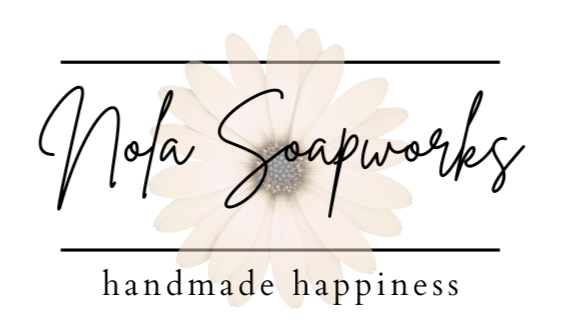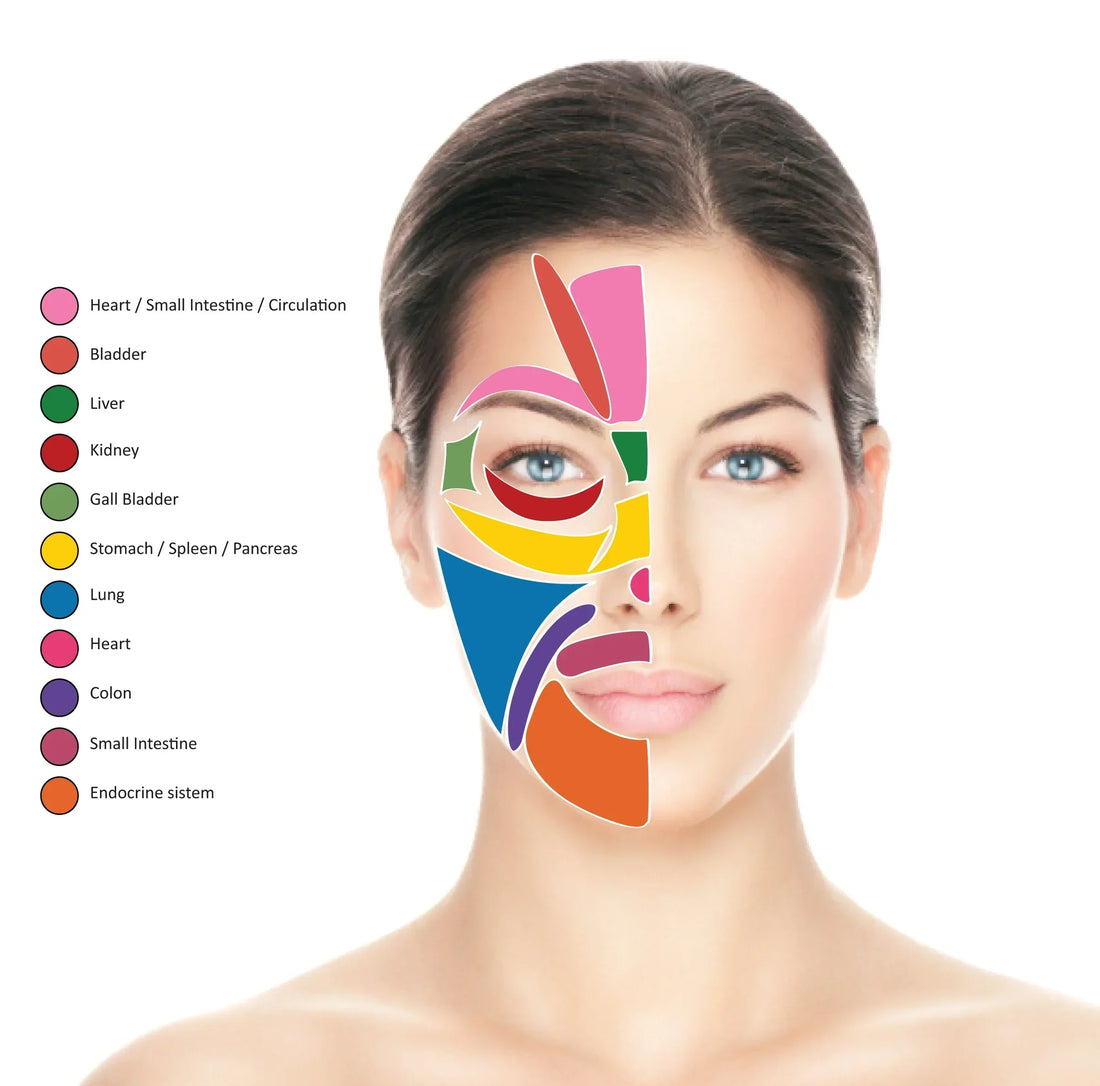Ever wonder why pimples tend to pop up in the same spot over and over again?
You scrub and you wash and you tone and you moisturize, and still they show up just when you least need them, like right before a big interview, presentation, or meeting with your new in-laws.
You know how to grin and bear it. You probably know how to cover it up. You may even know what you need to do to get your skin back on the healthy track. If you want to say goodbye to your acne for good, however, the next time it shows up, you may want to perk your ears a bit. After all, we’ve heard that if you listen, your breakouts will tell you what you need to know to stop them from coming back.
According to an ancient Ayurvedic technique called face mapping, the location of your acne may have something to do with what's happening inside your body.
Face mapping associates facial skin areas with different internal organs. When the practice was first developed thousands of years ago, the location of blemishes on the face helped doctors diagnose internal health problems. (They didn't have modern tools like X-rays, after all.) To these experts, the skin wasn’t just about appearance or aging. It was a window to the person’s life; a reflection of every facet of their health, habits, lifestyle, character, and fate. They felt the skin recorded a person’s existence, revealing clues about what they’d gone through.
How Do We Use Face Mapping Today?
Today, the practice can still be used to help zero in on the health- or lifestyle-related factors that might be bringing on breakouts.You can use this theory to do some detective work on your breakouts.
So far, we have focused mostly on the health aspect of the practice—the idea that certain areas of the face can give clues as to health problems in the rest of the body.
What might our faces be saying about our health?
We use the traditional Chinese face map to determine what goes with what. The cheeks, for example, are said to give clues as to the health of the respiratory system, while the chin exposes issues with hormonal balance.
Where are you breaking out?
In case you are wondering what you can do or what changes you can make to improve your skin based on the above acne map, here are some suggested treatments for the breakouts occurring on each facial region:
Forehead: Linked to digestive system, liver and sleep
- Go to bed early (10pm) and wake up early (6am). Even if you can't fall asleep, it's good to relax so your liver can rest and be ready for work the next day
- Drink plenty of water to flush out toxins
- Drink less soda and carbonated beverages
- 20-30 minutes of light exercise every day, especially outdoors
- Practice relaxation techniques to worry less
- Get enough sleep with a regular sleep schedule
- Eat healthy foods, chewing thoroughly to improve your digestion
- Reduce refined sugar in your diet
- Keep a daily food diary to see if your acne is related to certain food groups (like dairy)
- Practice better hygiene (i.e. washing bangs and hair, cleaning hats)
- Check if shampoos, conditioners, and hair products are irritating skin
T - Zone ( Between the Brows and Temples) : You are what you eat
- Eat less processed food, junk food, and fast food
- Reduce the amount of unhealthy fat in your diet (healthy fats from avocado and fish are okay)
- Eat cooling foods like bitter melon, cucumbers, and gourds
- Practice better hygiene, especially during the summer and if you wear makeup and/or sweat a lot
- Exercise, but avoid overly strenuous exercise
- Get more sleep
- Avoid alcohol
- Avoid smoking
- Eat lighter foods and foods that are less "rich" (like butter and cheese)
- Avoid late night snacks
Cheeks - Respiratory , Too Much Sugar - Breathe Fresh Air
- Eat less sugar
- Get more fresh air
- The lung is strongest at 7-9 AM. This is the best time for aerobic exercise
- Practice proper hygiene, especially if you live in a polluted city
- Check laundry detergent for any irritating ingredients
- Eat more cooling foods such as gourds, winter melons, and green beans
- Don't overeat, especially junk food
- Try to decompress and relax
- The liver is the strongest from 1-3 AM. This is when you should be sleeping
- The liver is weakest at 1-5 PM, so schedule difficult work for the morning
- Practice proper hygiene, especially if you live in a polluted city
- Clean cell phones with rubbing alcohol
- Lower left cheek acne could represent poor dental health, so keep your gums and teeth healthy by flossing and brushing regularly
Jaw or Chin - Hormones are wonky
- Reduce the habit of eating before bed
- Eat more fresh fruit and vegetables
- Get more rest
- Get your hormones checked for imbalances
- Get 20 minutes of exercise each day
- Sleep early and wake up early, getting at least 7-8 hours of sleep each night
- Reduce stress as much as possible (yoga, meditating, listening to music, writing in a journal, etc.)
- Massage your body for relaxation, particularly the abdomen
- Practice proper hygiene
- Check toothpaste, mouthwash, and chap-sticks
- Drink spearmint tea
- Take omega-3s to help regulate hormones
When did you break out?
Tracking just when your breakouts show up can also help you determine what may be causing them. Here are some tips to help:
- First thing in the morning: If you’re finding pimples in the morning that weren’t there the night before, there could be a couple things at work. First, you may have forgotten to wash your face before bed (always a must!). Second, you may have eaten something for dinner or dessert that didn’t digest well, causing changes in your skin. Eating too close to bedtime may also encourage the formation of pimples.
- Afternoon: This may be caused by hormones, if you’re getting close to your menstrual cycle, or it could be that your makeup or moisturizer is to blame. If you start out with a fresh face and then by afternoon see pimples and blackheads showing up, check the ingredients in your makeup and moisturizing products. Things like mineral oil, propylene glycol, dimethicone, and others can actually create a barrier on skin that traps bacteria underneath, increasing your chances of a breakout.
- Evening: Did you wash your face after work? Before your exercise routine? Before cooking? Remember that all day, your skin is subjected to pollution and contaminants in the air. Makeup, as well, can sit on your skin all day long. The second you walk in the door, wash your face and put on a fresh moisturizer.
What type of breakouts do you have?
Look more closely at your breakouts. Do you have just one or two inflamed pimples, or a cluster of blackheads? This information can give you more clues as to what may be going on:
- Blackheads and clogged pores:
- These are those tiny black spots that like to dot your skin
- Your skin may be dry in the area of the breakout.
- This may indicate a congested liver
- Try a short detox-diet to flush out your system.
- Drink extra water
- Cystic acne:
- Swollen bumps under the skin.
- Can take weeks to heal.
- All skin types can suffer this type of acne. It may be connected to
- Hormonal issues
- Digestive issues.
- Consider getting more probiotics in your diet (from things like yogurt and kefir).
- Frequent acne:
- Whiteheads and blackheads, though they are usually small
- likely to be related to some ingredients that your skin doesn’t like.
The suggested remedies for acne focus more on lifestyle and diet changes than topical treatments. You don't have to follow them exactly (I sure don't), but I have come to realize that living a healthier (food and sleep-wise) and happier life tends to complement getting better skin.
It is also important to keep in mind that the above remedies are just suggestions that may or may not apply to everyone. Since everyone's skin is so unique and different, what works for one person won't necessarily work for another. Ultimately, it is up to you to do proper research before using or doing anything to your skin.
Acne can be as much internal as it is external and while lifestyle changes may not make acne go away completely, healthy habits will provide long-term benefits both to your skin and your health.
Until Next Week.... Stay Crunchy !!
Essentially,
Christine
Disclaimer: The information contained on this site is general in nature and for informational purposes. It is not meant to substitute for the advice provided by your own physician or other medical professional. None of the statements on this site are a recommendation as to how to treat any particular disease or health-related condition. If you suspect you have a disease or health-related condition of any kind, you should contact your health care professional immediately.










